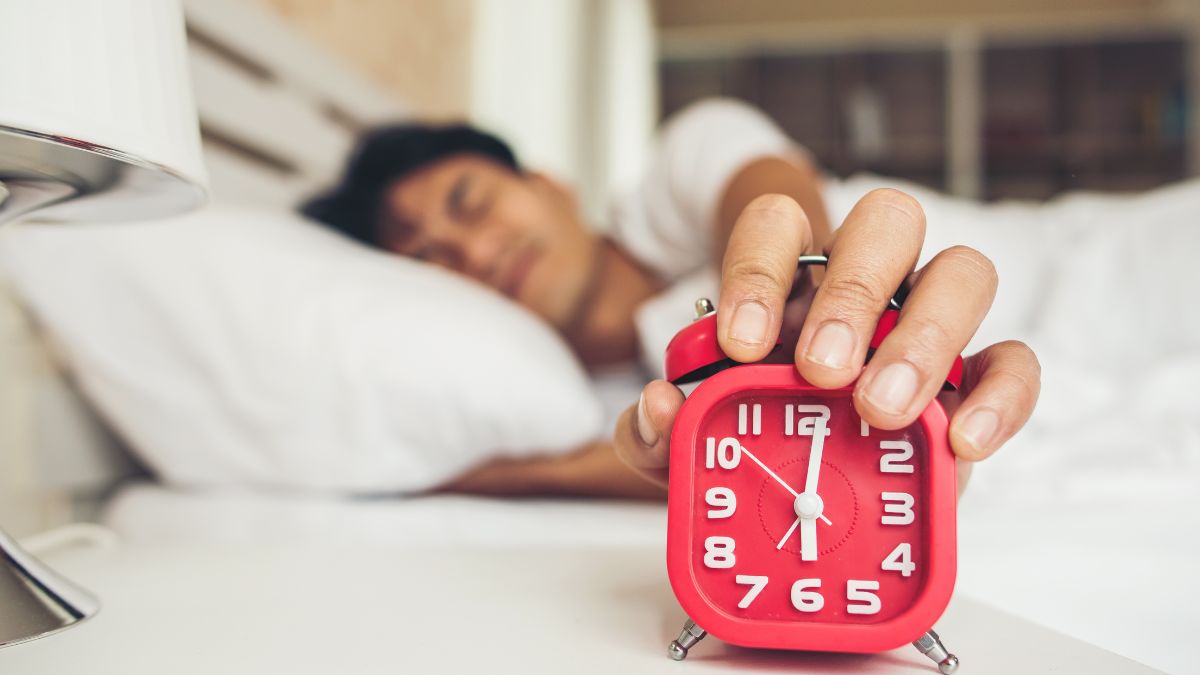
I wonder how many people would set an alarm to wake up on time if there wasn't the option to hit the snooze button. While pressing snooze on your alarms might make you feel guilty, and is sometimes considered a sign of unpunctuality, a recent survey says that it might help you feel more relaxed.
Table of Content:-
Is It Healthy To Snooze Your Alarm?

Published in the 'Journal of Sleep Research,' the study revealed that 69% of the participants said they sometimes hit the snooze button or set multiple alarms. In fact, as per their assessment, snoozers tend to be about 6 years younger.
This is because, as the study revealed, snoozing your alarm in the last 30 minutes before waking prevents people from waking up from deep sleep, reducing the chances of severe grogginess, and hence enhancing energy and immunity.
Moreover, cognitive abilities improved after snoozing. The study suggested that snoozing might help in terms of alertness and thinking, even if it doesn't make people feel less sleepy or happier right after waking up.
Also Read: The Dark Side of Night Owls: Sleeping Late Can Put You At Risk Of Early Death And Chronic Diseases
Side Effects Of Snoozing Your Alarm

However, this does not mean that now you have the gateway to snooze your alarms and get that extra minute of being lazy. Some of the key findings of the study were:
- Snoozers are 3.7 times more likely to be night owls.
- 71% of them snooze on workdays or both workdays, while 23% do it on their days off.
- For those who hit snooze, they spend an average of 22 minutes snoozing in the morning.
- They also get about 13 minutes less sleep on workdays.
- 25% of the participants reported hitting the snooze button because they felt too tired to wake up, 17% did it because it felt good, and another 17% did it because they wanted to wake up more slowly and softly.
- 60% usually fall back asleep between the alarms.
The researchers also advised that for people who already have trouble with their sleep, snoozing might not be beneficial, as the sleep quality during snoozing your alarm is highly disrupted, and is a sign of lack of sleep.
Also Read: Can You Catch Up On Lost Sleep? Expert Informs The Dangerous Effects Of Sleep Debt
In summary, many people snooze because they feel too tired to get up, related to sleep inertia. Snoozing for 30 minutes in the morning had minimal impact on sleep quality but prevented waking up from deep sleep. While some might argue that the time spent snoozing could be better used for more sleep, it seems that snoozing serves a purpose for those who do it.
Also watch this video
How we keep this article up to date:
We work with experts and keep a close eye on the latest in health and wellness. Whenever there is a new research or helpful information, we update our articles with accurate and useful advice.
Current Version
